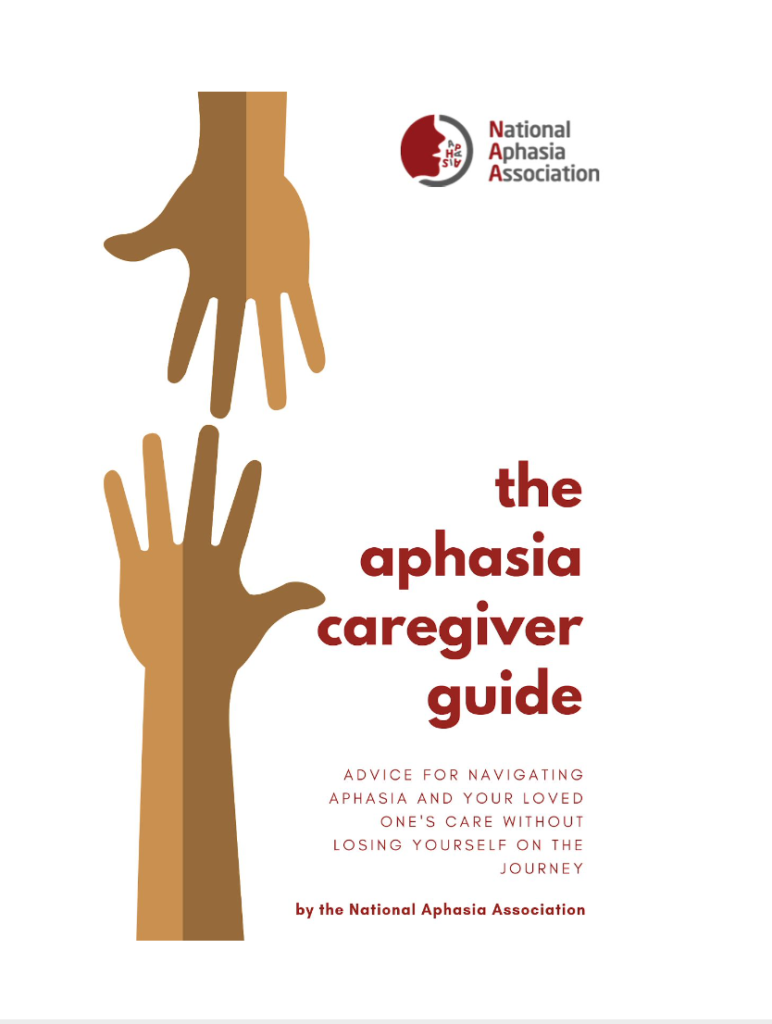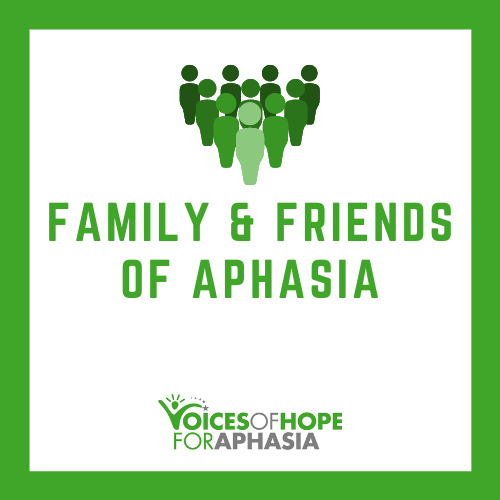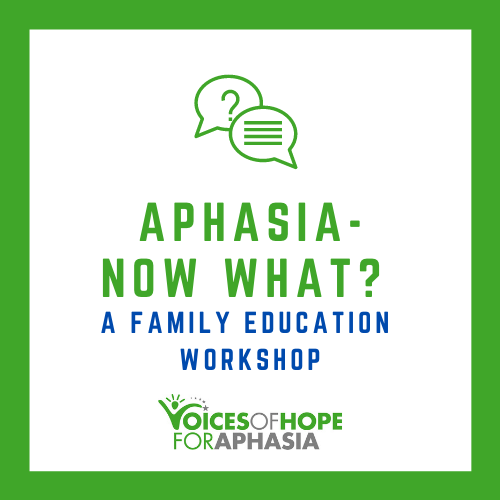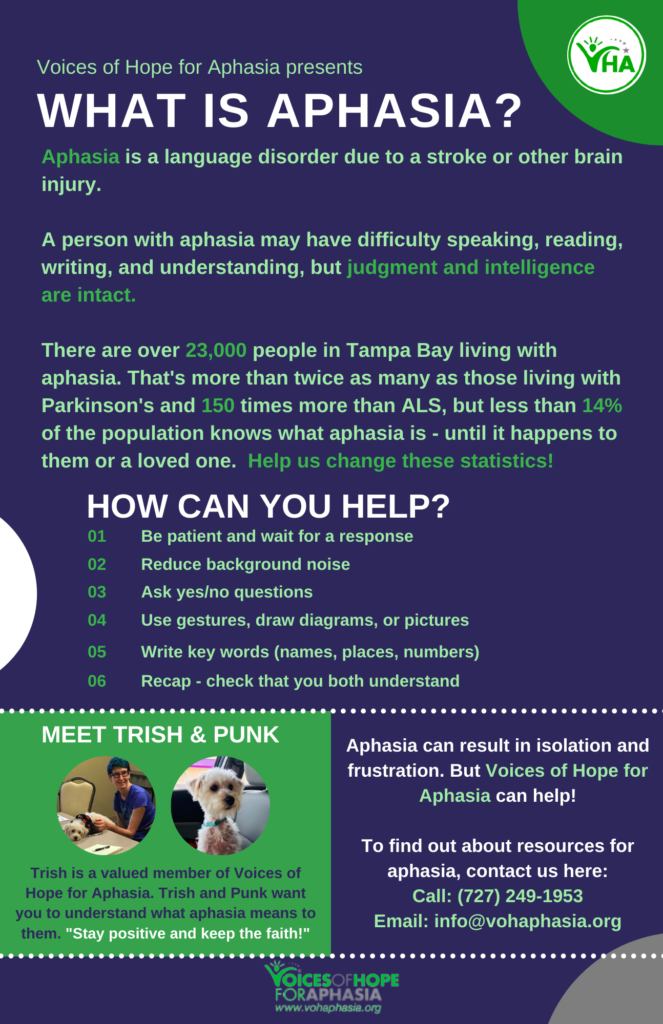by Brooke Oliver:

Has your loved one recently been diagnosed with aphasia? Are you feeling overwhelmed and unsure of what your next step should be? YOU ARE NOT ALONE!

The quality of life for a person with aphasia strongly depends on their supportive network. It is imperative that family members and caregivers are given the resources and tools they need to help their loved one. Whether you have been touched by aphasia for a long time or are new to aphasia, Voices of Hope for Aphasia provides support and education for family and friends.
(virtual) SUPPORT GROUP:
Voices of Hope for Aphasia has a Family Support Group that meets once a month. This is a time for the family members, friends, and caregivers to connect and share the challenges they face every day. It is a great opportunity to share your ideas and hear what others are doing to manage the everyday challenges. Currently, we are meeting on Zoom. Join our mailing list to be updated on future in-person meetings by filling out the form in our side bar.
Not in the Tampa Bay area? Or prefer to find an in-person support group near you? Our friends at The National Aphasia Association can help! Click here to search for a support group near you! *We recommend calling the support group first to find out if they are meeting in person or virtually. Some support groups have had to suspend all meetings due to COVID-19.
EDUCATION:
Did you leave the hospital with little information on what aphasia is? Do you know what type of aphasia your loved one has? That’s right – There are many different types of aphasia. Do you want to learn more about aphasia and how you can help your loved one? Our family educational workshop is the perfect place to start. This popular workshop has been redesigned so it can be delivered virtually. This 2-day workshop provides education, support, and strategies for the entire family unit. Caregivers and loved ones get an opportunity to learn about aphasia, feel what it might be like to have aphasia, learn supported communication techniques, and ask questions about their experiences and challenges with aphasia. Click here to learn more about our workshop and to register.
TIPS for Communicating with your loved one
You can make just a few small changes to help a person with aphasia understand what you are saying and to help them get their message across. Download our tip sheet here.
1) Be PATIENT
- Remember that aphasia does not affect intellect! Your loved one wants to communicate with you…give them time!
2) Write key words, draw, use gestures
- Have you been playing 21 questions? Asking a million questions can be frustrating for both the person with aphasia and the caregiver. Writing key words, drawing pictures, and using gestures can enhance comprehension of a person with aphasia and ensure that you are both on the same page in your conversation!
3) Ask yes or no questions
- Ask one question at a time. For Example, “Do you want fish for dinner? Yes or No?”. Try writing “yes” and “no” on a blank piece of paper and have them point to their answer. For this to be successful, it’s important to know that the person with aphasia has a reliable yes and no response. Sometimes people with aphasia can mix up the two responses, saying “yes” when they mean “no”. A speech language pathologist can assess the person with aphasia to determine if they have a reliable yes and no response.
4) Resist the urge to finish their sentences
- If your loved one is struggling, first ask, “may I help you?”.
5) Eliminate background noise
- Turn off the TV! Avoid going to restaurants at busy times. Loud environments can make it even more difficult for a person with aphasia to speak or understand speech.
6) INCLUDE THEM!
- Aphasia can be incredibly isolating…include them in conversations, games, decision making, etc. They may not be able to participate the way they used to, but that doesn’t mean they can’t still participate in a NEW way!
These are just a few tips that can help you communicate with your loved one. To learn more communication tips, visit our friends at Lingraphica to see their list of resources!
Are you looking for a speech therapist for your loved one with aphasia? Our friends at ASHA can help! Click here to find a speech therapist near you!
Want more?
The National Aphasia Association has an Aphasia Caregiver Guide just for you!




